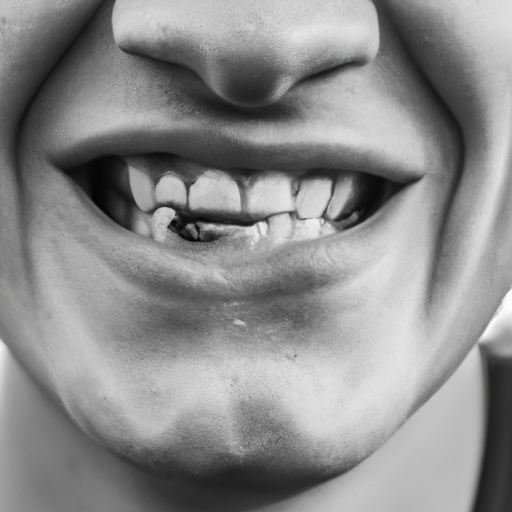Participating in sports brings about numerous physical benefits, but it also poses certain risks, including dental injuries. From contact sports like football and hockey to non-contact sports like basketball and gymnastics, athletes are susceptible to dental trauma that can have long-lasting consequences if not properly addressed. This article delves into the crucial role dentistry plays in sports, exploring the diagnosis, treatment, symptoms, causes, and overall importance of safeguarding athletes’ smiles on the field. By understanding the symptoms and causes of sports-related dental injuries, recognizing the crucial role of dentistry in diagnosing and treating dental trauma, and highlighting the importance of sports safety, we can better protect athletes and ensure their oral health remains intact throughout their sporting careers.
1. "Sports-Related Dental Injuries: Understanding the Symptoms and Causes"
Sports-Related Dental Injuries: Understanding the Symptoms and Causes
Sports can be exhilarating and enjoyable, but they also carry a risk of injuries, including dental injuries. These injuries can range from minor chips and fractures to more severe tooth avulsions or dislocations, and they can have a significant impact on an athlete’s performance and overall well-being. Understanding the symptoms and causes of sports-related dental injuries is crucial in preventing and effectively treating such incidents.
Symptoms of sports-related dental injuries vary depending on the severity and type of injury. One common symptom is tooth sensitivity, which can occur due to enamel damage or exposed dentin. Athletes may also experience toothache or pain when biting or chewing, indicating possible nerve damage or fractures. Swelling and bleeding gums are additional signs to watch out for, as they may indicate a more serious injury. In more severe cases, athletes may notice a loose or displaced tooth, or even complete tooth loss. Recognizing these symptoms early on can help athletes seek prompt dental care and prevent further complications.
Several factors contribute to sports-related dental injuries. Firstly, direct impact to the face and mouth during contact sports, such as football, hockey, or basketball, is a common cause. Collisions with other players or hard objects, such as balls or equipment, can lead to dental trauma. Secondly, inadequate or ill-fitting mouthguards can increase the risk of injury. Mouthguards act as a protective barrier, cushioning the teeth and soft tissues in the mouth during sports activities. Athletes who fail to wear a mouthguard or wear one that does not provide sufficient coverage are more susceptible to dental injuries. Lastly, poor dental hygiene and weakened tooth structure can also make individuals more prone to dental injuries. Decay, gum disease, and weakened teeth due to cavities or previous dental work can contribute to the severity of an injury.
Prevention plays a crucial role in minimizing the occurrence and severity of sports-related dental injuries. The use of properly fitting mouthguards is one of the most effective preventive measures. Athletes should wear custom-made
2. "The Crucial Role of Dentistry in Sports: Diagnosis and Treatment of Dental Trauma"
Dental trauma is a common occurrence in sports, often resulting from direct blows to the face or accidental collisions. It can cause severe pain, tooth fractures, dislodgement, or even complete tooth loss. The consequences of dental trauma extend beyond the immediate physical discomfort, as it can also affect an athlete’s performance, self-confidence, and overall well-being.
In such cases, the role of dentistry in sports becomes crucial, as prompt diagnosis and treatment are essential to minimize the long-term impact. Dentists who specialize in sports dentistry play a vital role in providing immediate care and ensuring the athlete’s oral health is restored effectively.
Diagnosis of dental trauma begins with a thorough examination of the affected area. Dentists assess the extent of damage to the teeth, gums, and surrounding structures, looking for signs of fractures, dislodgement, or any other related injuries. X-rays and other imaging techniques may be employed to obtain a clearer picture of the damage and any underlying issues.
Once the dental trauma is diagnosed, dentists can proceed with appropriate treatment measures. The specific treatment options depend on the nature and severity of the injury. For minor fractures or chips, dental bonding or veneers may be used to restore the tooth’s appearance and functionality. In cases of more extensive damage, root canal treatment, dental crowns, or even dental implants may be necessary to preserve the tooth or replace it entirely.
Beyond the physical aspects, dentists also address the psychological impact of dental trauma on athletes. They understand that an athlete’s self-esteem and confidence can be affected when their smile is compromised. Therefore, they provide support and counseling to help athletes regain their self-assurance and mental well-being.
Prevention plays a significant role in sports dentistry as well. Dentists work closely with athletes, coaches, and trainers to educate them about the importance of wearing appropriate mouthguards during training and competition. Custom-made mouthguards offer superior protection compared to generic ones and can significantly reduce the risk of dental trauma. Dentists also emphasize the significance of regular dental check-ups to identify
3. "Protecting Smiles on the Field: How Dentistry Plays a Vital Role in Sports Safety"
Sports are an integral part of our lives, offering numerous benefits such as physical fitness, teamwork, and personal growth. However, engaging in sports activities also poses a certain level of risk, especially when it comes to oral health. From contact sports like football and hockey to non-contact sports like basketball and soccer, athletes are prone to dental injuries. This is where dentistry comes into play, ensuring the safety and well-being of athletes by protecting their smiles on the field.
One of the primary roles of dentistry in sports is the diagnosis and treatment of dental injuries. Athletes often experience dental trauma, which can result in broken or dislodged teeth, fractured jaws, or soft tissue injuries. Dentists specializing in sports dentistry are trained to identify and assess these injuries promptly. By utilizing their knowledge and expertise, they can provide immediate care and treatment, preventing further complications and ensuring a swift recovery for the athlete.
Moreover, dentistry plays a crucial role in preventing dental injuries in sports through the use of protective gear. Custom-made mouthguards are one of the most effective ways to safeguard athletes’ smiles during physical activities. These mouthguards, also known as sports guards or athletic mouth protectors, are designed to fit the individual’s teeth and provide a cushioning effect against impacts and blows to the face. Dentists work closely with athletes to create personalized mouthguards that offer maximum protection, ensuring a comfortable fit and unobstructed breathing.
Beyond the diagnosis and prevention of dental injuries, dentistry also focuses on addressing the symptoms and causes associated with oral health issues in athletes. For instance, dental caries or tooth decay is a common problem among athletes due to their high-sugar diets, frequent consumption of sports drinks, and inadequate oral hygiene practices. Dentists educate athletes about the importance of maintaining good oral hygiene habits, such as regular brushing, flossing, and dental check-ups, to prevent tooth decay and other oral health problems.
Additionally, dentistry plays a vital role in recognizing and managing oral conditions that can affect an athlete’s performance. Temporom



